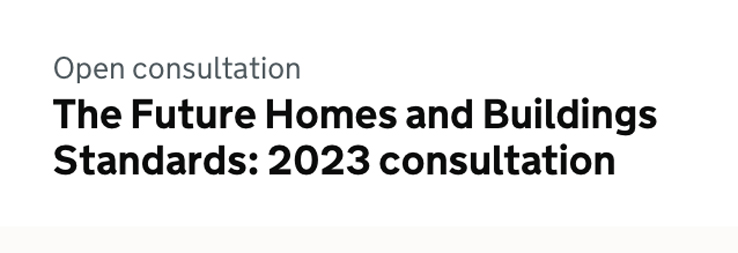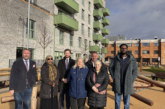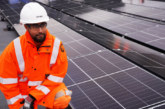
The Government has opened consultation into the Future Homes and Buildings Standard which will set vital regulations for homes constructed beyond 2025. Here we share opinion from the UK Green Building Council and The Kensa Group.
This can’t genuinely be described as a ‘future’ standard
Simon McWhirter, Deputy Chief Executive at UKGBC said: “This can’t genuinely be described as a ‘future’ standard. Having already shattered industry confidence with repeated green rollbacks, the Government has opted for the least ambitious option that would deliver ‘future’ homes from 2025 at a lower standard than many homes already built today.
“On the last day of the global climate negotiations when we’re in the last chance saloon to keep temperatures under 1.5 degrees, it’s unconscionable that the Government is consulting on scrapping the expectation that new roofs should have solar panels, when this is already widely delivered through current regulations.
“While the Government is right, of course, to finally end the era of burning gas and oil in our new homes and buildings, fitting low-carbon heating sources such as heat pumps is already commonplace, and the standard provides no improvement in energy efficiency.
“We’re disappointed that, despite such a long delay in producing this draft Standard, the Government still hasn’t included measures to reduce the embodied carbon emissions from construction which accounts for around one in 10 tonnes of climate emissions in the UK. Nor has it moved to tackle flood risk or end the huge water waste from new-builds that is driving shortages and so much ecological damage.
“The best developers have spent years and millions gearing up for modern green building standards which shows that higher standards are possible. UKGBC will be convening our members to submit a detailed response to the consultation that sets out how higher standards can be practical, affordable and protect climate and nature.”
Kensa welcomes Future Home Standard’s bold new proposals for zero carbon heat in new homes
Commenting on the publication of proposals for a new Future Homes Standard, setting out the carbon and energy efficiency requirements for all new homes from 2025, Tamsin Lishman, CEO of The Kensa Group said: “The publication of proposals requiring all new homes to be low-cost, low carbon and energy-efficient to run is a major step forward for the decarbonisation of homes and heat. This new standard will boost heat pump installations drastically, expanding the market from 50,000 to over 250,000 almost overnight, providing companies like Kensa with the confidence to go ahead and invest heavily in new manufacturing facilities and the continued development of our supply chains.
“It is particularly important that these proposals intend to make heat pumps and low carbon heat networks the default options for heat in new homes, effectively banning new gas grid connections and so-called hydrogen-ready boilers from installation. Allowing these technologies to continue to be installed in new homes would simply have maintained confusion about the future of home heating and short-changed hundreds of thousands of new home buyers who would have inevitably had to replace their fossil fuel heating system in the years to come.
“In an extremely busy policy landscape, establishing these standards is the single most important step the Government can take to fire up the heat pump market and drive investment in the sector. As a developer of networked heat pumps, a heat pump in each home connected to a shared networked in the street, Kensa is confident the Future Homes Standard will now lead to a major expansion in the deployment of this technology, combining the best of heat networks and individual heat pumps.”









